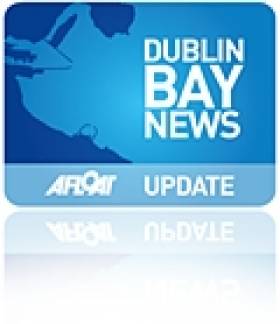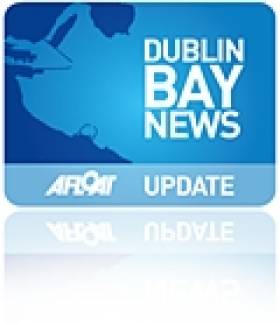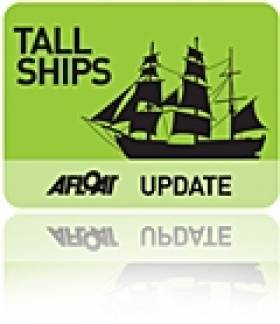Displaying items by tag: Diaspora
Diaspora Museum Plans Scrapped By Government
#diasporamuseum – The governement has altered course on plans for a national emigrant museum because it fears a backlash from rejected bidders ahead of the general election, according to a report into today's Sunday Business Post newspaper.
Inspite of a drawing up a plan to draw 300,000 visitors annually to a new national facility the government is now aiming at smaller regional museums instead.
Dun Laoghaire and Cork harbour were among sites considered in the plan. Both ports had advanced amibitious plans for a national diaspora project.
The Port of Cork's Company's Custom House and Bonded Warehouse buildings located along the city's central quays, were to be converted into a major €15m museum that will tell the story of Ireland's emigration.
In Dun Laoghaire on Dublin bay, port chief executive Gerry Dunne made the case for a diapora centre in the South Dublin port town at a gathering in the House of Lords in London in January 2013. The museum, to be located on the town's Carlisle Pier, forms a major part of the harbour's regeneration plan.
Details of Global Diaspora Forum to be Announced in Dun Laoghaire
#diaspora – Details of the European strand of the Global Diaspora Forum will be announced by An Tánaiste and Minister for Foreign Affairs and Trade at 1pm tomorrow on Friday, 22nd February, at the offices of Dún Laoghaire Harbour Company, in Dún Laoghaire.
Harbour Company chief executive Gerry Dunne made the case for a diapora centre in the South Dublin port town at a gathering in the House of Lords in London recently.
The meeting was hosted by Baroness Detta O’Cathain, a member of the leadership council of the Irish International Diaspora Trust which is working to create a diaspora centre at Dún Laoghaire Harbour.
The Global Diaspora Forum was inspired by the former US Secretary of State, Hillary Clinton, and has taken place annually in Washington since 2011.
During Ms. Clinton's visit to Ireland in December, it was agreed to host the first European strand of the forum in Dublin.
The forum will take place on 14th and 15th of May in Dún Laoghaire. It will be hosted by the Irish International Diaspora Centre (IIDC) Trust, which is working to deliver a world-class diaspora centre in Dublin. The Trust operates under the auspices of Dún Laoghaire Harbour Company.
The purpose of the forum is to challenge diaspora communities to forge partnerships with the private sector, civil society and public institutions in order to make their engagements with their countries of origin effective and sustainable.
Friday's event will also be addressed by John Hennessey-Niland, Chargé d'Affaires at the US Embassy in Dublin.
Dun Laoghaire Diaspora Centre Seeks Funding
Dun Laoghaire's planned new diaspora centre will rival the likes of Sydney Opera House, according to the semi-state body behind the proposal.
Dun Laoghaire Harbour Company estimates the cost of the project at €50 million. Most of this will come from EU and State funding, but some €15 million in donations will be required for the scheme to go ahead.
It's expected that this money will come from corporate donors and private investors, both at home and among the diaspora.
Discussions have also begun with a view to twinning the centre with the Ellis Island memorial in New York.
The diaspora centre would directly provide 200 jobs in Dun Laoghaire, which hopes to begin welcoming the latest breed of cruise liners to the harbour next year.
Tall Order for Ireland
Sailing in Ireland could yet have a tall ship to replace the Asgard II and the Lord Rank. A meeting in Dublin in late March represents a major step forward in the process to put an Irish tall ship back on the high seas.
The open workshop, to be held on March 26th, will be facilitated by Dublin Port, and will include state interests, tourism interests, commercial port interests, youth organisations, maritime organisations and education groups, together with the former Lord Rank and Asgard II operators.
The catalyst for the initiative is a 'reference group' which represents a broad cross-section of interests, both North and South. Operating under the chairmanship of Lord Glentoran, and supported by Dr Gerard O'Hare, David Beattie and Enda O'Coineen, the group has also engaged a professional consulting firm to move the process along.
The initial focus is on the necessary organisation and rationale behind building a new vessel, while scientifically quantifying the benefits to build a plan and justification.
The view taken is that, while there may be no money available at this time, there is no excuse for not having a plan and the idea is to create ' joined-up' thinking. And while the government in the South placed the insurance money paid out on Asgard II back into general exchequer funds, the insurance payment on the Lord Rank was kept and ' ring-fenced' for this new initiative.
To date, there have been several meetings of the reference group. The planned workshop on the subject at Dublin Port March 26 is open and interested parties are invited to contribute. It will also bring together for the first time the leaders of Tallships in Dublin, Belfast, Waterford and Cork.
Ultimately Tall Ships is about youth training and development; without an active Tall Ship, it will be very difficult for Ireland to attract Tall Ship events. The new reference group will work to support the new Sail Training Ireland Association initiative, and link in with Sail Training International which runs Tall Ship events.
Following the Dublin workshop, Belfast Harbour Commissioners will host a working meeting of the group in early May to finalise a plan, present to stakeholders and create a roadmap forward.
"In addition to youth training, a working Tall Ship forms a brilliant ambassadorial role promoting tourism, enterprise and commercial interests," said Lord Glentoran. "It is something that we can all relate to and it has universal acceptance for youth training on an island of Ireland basis." Lord Glentoran has a long commitment to youth sail training and was Chairman of the organising committee that brought the Tall Ships to Belfast in 1991.
The reference group is seeking to engage with as many stakeholders as possible, and has pledged that the new vessel will be owned by the community in Ireland and the Irish Diaspora. The initial view is that the project clearly needs to be linked with the institutions of State - North and South - as are universities state agencies and ports, while at the same time having a strong private support network making for a mix of public and private funding, "We now have a brilliant opportunity to look around the world, establish best practice in the best kind of vessel, how to fund it and to quantify the benefits for each of the stakeholder group," said Enda O'Coineen, who has been instrumental in bringing the group together. In addition to being a former Coiste and Asgard Director, he is the founding Chairman of Let's Do It Global, which brought the Volvo Ocean Race to Galway and successfully raced the Green Dragon around the world.
O'Coineen added that a "world class solution" can be created and that its benefits can be financially quantified, which would allow supporters to make a compelling business case to divert and use existing funds in Tourism, Enterprise and Youth Training. "While there is no money available now to support the scale and professionalism needed, this is not an excuse not to have a plan and a vision," he added.
Since the loss of the Asgard II and Lord Rank, Ireland has been left with no sail training opportunities for young people and likewise for maritime development, enterprise and tourism. If nothing is done, future generations will suffer. The reference group believes that the solution is the construction of an Ireland - North and South - training vessel, fulfilling several roles with a common mission and resourced according to quantifiable benefits delivered to stakeholders. It is also open to the use of an existing vessel - a key component being suitability and the operations budget.
The proposed Tall Ship project will enhance skills and opportunities for young people across the island, regardless of background, class or education. It could be used to showcase Ireland as a brand at overseas events and it could also host international students who wish to come to the island of Ireland, as is the case with many of the International Tall Ships Programmes already running on a global scale which create a huge amount of tourism for their respective countries.
The reference group notes that the Tall Ships concept appeals to young and old alike as the romanticism behind the concept touches on history, social studies, legacy, family, travel, adventure and, most importantly, fun. Tall Ships allow people to dream. They do however have an underlying seriousness and the concept is grounded in methodology that has been tested and proven the world over.
An advertisement in March/April of Afloat magazine - out now - gives full detials of the 'Tall Ship for Ireland' Workshop
Should Ireland be represented at the Tall Ships Races at Waterford 2011 and Dublin 2012? We want your vote on our Facebook Poll HERE.
Looking for further reading on Tall Ships in Ireland? Click the links below:
Click this link to read all our Tall Ships Stories on one handy page
Previewing Ireland's Tall Ships 2011 Season

































































